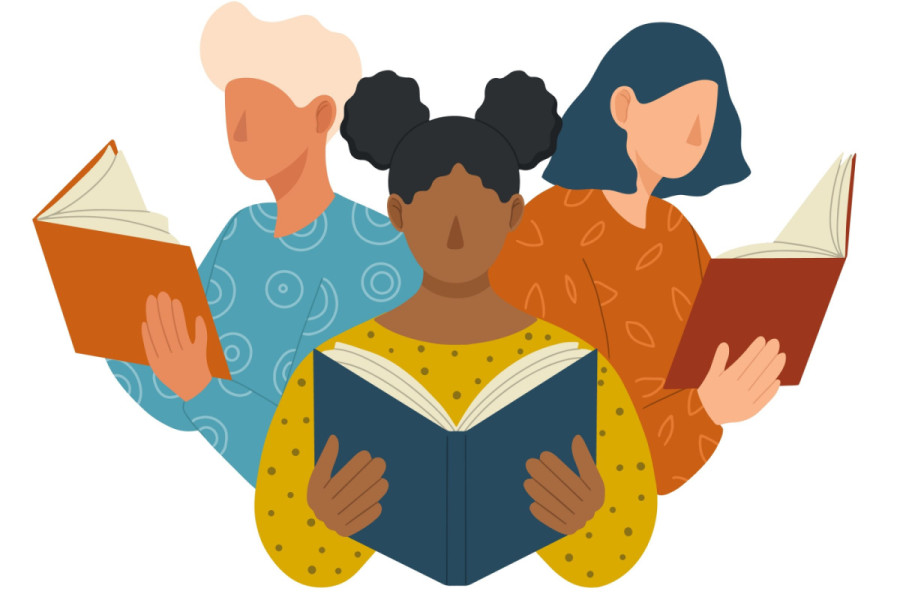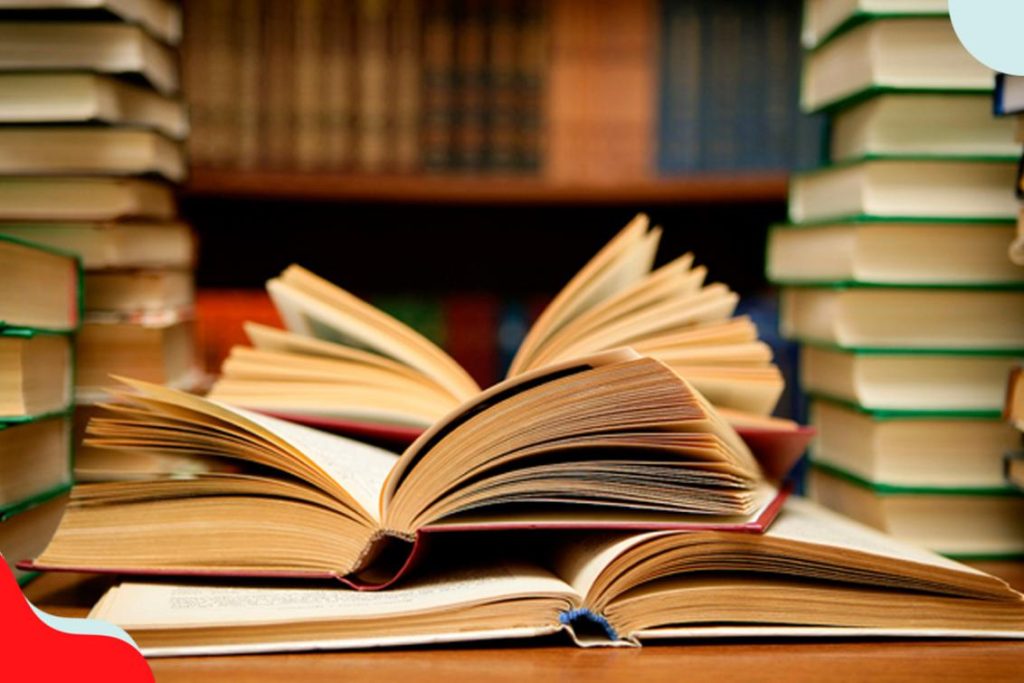JAKARTA, incaschool.sch.id – Educational Literature: A Gateway to Knowledge and Learning Development. Whoa, that sounds super fancy! But listen—if you really think about it, books and articles have shaped a huge part of who I am today. This isn’t some boring lecture, trust me. I’m just someone who went from absolutely hating textbooks to stockpiling a weird number of self-help PDFs and novels. I’ll spill everything about how educational literature jumpstarted my Knowledge, learning, and even my career. And maybe, just maybe, it’ll work for you too.
How Educational Literature Opened My Mind

Okay, flashback time—I used to think all books were the same, especially when teachers forced us to read stuff like “To Kill a Mockingbird” in high school. I would just skim or, honestly, read the Wikipedia summary before tests. (Don’t do this; it rarely works out.) But after high school, things flipped. I picked up a random book on psychology by Daniel Kahneman after a friend posted a quote online. That one book lit a fire in me, and suddenly, I started reading books about everything: history, science, entrepreneurship, and even graphic novels on climate change.
Turns out, educational literature isn’t just dusty textbooks or brain-melting research papers. It’s any book, essay, or article that helps you learn or see things from a new perspective. So if you hate thick textbooks, try a book with illustrations or a biography about someone you admire. The trick is finding what actually interests you—not just what school assignments force on you.
What Makes Educational Literature So Powerful?
Here’s a real talk: Google can’t teach you everything. Sure, you can get quick facts, but books and good educational pieces let you dive deep. It’s like watching the director’s cut instead of just a movie trailer. When I first read “Sapiens” by Yuval Noah Harari, my worldview changed. Suddenly, I questioned things I’d never noticed before — like why we believe in money, or how simple stories shape entire societies.
But it’s not just about gaining Knowledge; it’s about learning how to think critically. The more I read, the easier it became to make connections between topics or recognize patterns that I’d totally missed before. Educational literature helps you build frameworks in your head so you aren’t just memorizing stuff but really understanding it.
Common Mistakes (Yeah, I Made Them!)
If you’re like me, you’ve probably made some of these classic mistakes with reading for learning. First: picking books that are way too advanced or totally out of your interest zone. I grabbed a finance book once that put me to sleep after one page (no offense to finance lovers). The result? I avoided educational books for weeks because I thought they were all like that.
My other mistake: reading just to finish, not to understand. I’d rush through chapters just to say, “Yeah, I read that,” but couldn’t remember a thing. Over time, I realized taking notes—even if it’s just doodles or margin scribbles—made a world of difference. These days, I use sticky tabs and write down random thoughts that pop up while I read.
And here’s my last blunder—reading everything alone. Trust me, joining a book club or chatting about books with friends helps. Sometimes, hearing another person’s take opens up new insights I’d never considered. Plus, you’ll actually remember the book way longer (science backs this up!).
Practical Tips to Make the Most of Educational Literature
Alright, if you want to get the most bang for your buck from educational literature, here’s some stuff I wish I’d known earlier:
- Set small, realistic goals—like reading 10 pages a day or finishing one article each week. You’d be surprised how fast that adds up.
- Mix up your genres! Don’t just read one type of book. If yesterday was about science, maybe today try a memoir.
- Use audiobooks or e-books if paperbacks aren’t your vibe. I listen to podcasts and audiobooks during commutes, and it honestly saved me hours.
- Take notes—not just summaries, but your honest reactions, questions, or “aha!” moments. This is your learning journey, after all.
- Review, don’t just consume. Go back to your favorite chapters later and see if your opinions changed.
Real Data: Why Educational Literature Works
You want some proof, right? Here’s a cool stat: a 2021 UNESCO survey showed that students who read regularly outside of school scored up to 20% higher in literacy tests. Crazy, right? When I first started keeping a reading log, I noticed my grades go up—not just in English, but in math and science too. Turns out, the habit of digesting information transfers across subjects.
Another insight: studies from the US found that just six minutes of reading can reduce stress levels by 68%. No joke, a short reading sesh often calms me down better than a nap. (Don’t tell my boss!) So if life gets hectic or you’re dealing with exam anxiety, grab a chapter or two of something educational—you might be shocked at how much it helps.
How Educational Literature Can Shape Your Future (Seriously)
I’m not exaggerating when I say that reading the right book can be a turning point. For example, “The Lean Startup” by Eric Ries blew my mind and got me into entrepreneurship. It even led me to attend a few local business seminars in Jakarta. That single book changed my perspective on risk, creativity, and problem-solving—which is a pretty big deal in today’s world.
Plus, exposure to varied ideas helps with problem-solving and empathy. When you read diverse perspectives, your own understanding grows, making you more adaptable. And with workplaces valuing soft skills, having insights from educational literature can actually give you a leg up on job interviews or while pitching projects.
Lessons Learned: The Real Stuff That Stuck
Here’s a personal nugget—reading about people who failed (and got up again) inspired me way more than just reading about success stories. I found new courage to try (and mess up at) things like public speaking, just because I saw others make mistakes and win in the end. Sometimes, educational literature isn’t just about Knowledge. It’s about motivation to get back on your feet, even after failing a test or screwing up a presentation.
So, what’s the takeaway? Educational literature really is a gateway—not only to Knowledge, but also to a richer, more colorful journey as a lifelong learner. Don’t be shy to start with something small, like an inspiring article or a graphic novel. You never know which book might end up changing your world—like it did mine.
Read also about Coconut Knowledge to uncover the nutritional benefits, cultural significance, and versatile uses of coconuts in food, health, and sustainable living.


